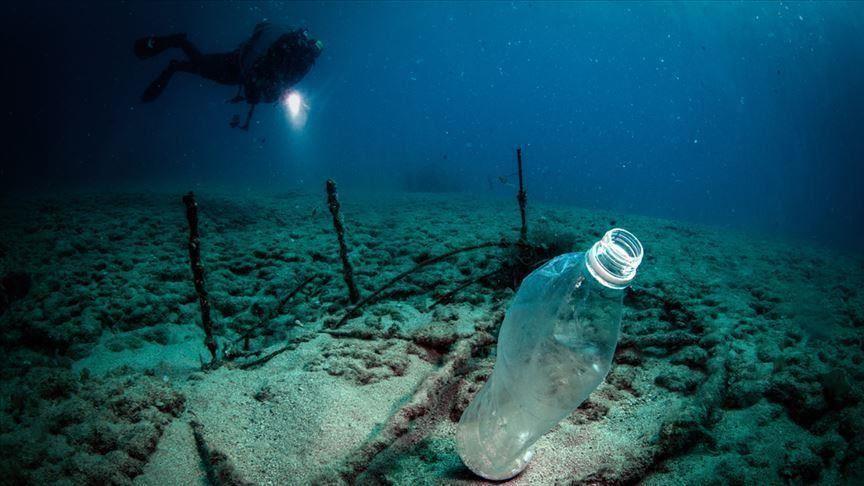The Indonesian government plans to implement a policy aimed at limiting single-use plastic in an effort to reduce ocean plastic waste by 70% by 2025, a government official said Thursday.
Among the regulations that will take effect in early 2020 is one requiring packaging producers to reduce plastic waste production by at least 30% in 10 years.
'This is mandatory. They may limit, reuse, redesign the packaging or take it back for recycling,' Novrizal Tahar, director of waste management at the Ministry of Environment and Forestry, told Anadolu Agency.
As one of the countries with the longest coastlines in the world and the world’s fourth most populous country, Indonesia is also the second biggest marine plastic polluter after China.
According to the Indonesian Institute of Sciences (LIPI), 0.27 to 0.9 million tons of waste enters the oceans every year through river flows with plastic bags and polystyrene foam (Styrofoam) the most common items found in the ocean.
Tahar said the data would be used as a reference for policies to reduce plastic waste.
He added that the central government would also ask regional governments to implement policies limiting single-use plastic.
'We will gather regional heads to encourage this restriction policy to be implemented early next year.”
Indonesia has made several assertive initiatives so far such as bans on plastic bags in several localities including the cities of Banjarmasin, Balikpapan and Bogor and in Bali province.
The policy has succeeded in reducing plastic waste by two to three tons per day in Banjarmasin.
In contrast, the capital city of Jakarta, which has the highest population density in the country, has not imposed restrictions on single-use plastic.
The latest research from LIPI shows that 59% of the marine waste released from nine rivers in Jakarta, Bekasi and Tangerang consists of disposable plastics that have polluted Jakarta Bay.
Several ministries have also been assigned to handle waste in Indonesia's leading tourist destinations such as Labuan Bajo, East Nusa Tenggara and Lombok.
Indonesian Maritime Affairs and Fisheries Minister Edhy Prabowo said Labuan Bajo produces as much as 12 tons of waste per day.
Prabowo assured that the government would find ways to manage the waste properly so it would not end up in the oceans.
'We will prepare a program so that coastal communities can help collect trash in the oceans,' he added.
By Nicky Aulia Widadio in Jakarta, Indonesia
Anadolu Agency
energy@aa.com.tr


